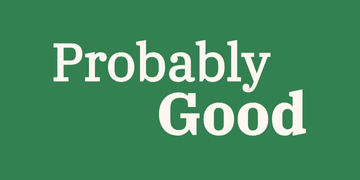Your comparative advantage refers to the extra advantage you have in a particular role in relation to the skills, strengths, and fitness of others who could do the job. Playing to your comparative advantage can help you to maximize your counterfactual impact, even if (perhaps surprisingly) it isn’t the role you are best at or most qualified for.
Comparative advantage in action
Comparative advantage occurs when you can produce something or perform a function at less opportunity cost than others can, meaning you give up less to do that task compared to alternative activities. It’s not about being the absolute best at something, but about where your skills create the most value relative to what others could contribute.
Consider Dr. Chen and Dr. Martinez, both working at a medical nonprofit in a resource-constrained region. Dr. Chen is highly skilled at both surgery and training local healthcare workers—she can perform 8 complex procedures per day or train 12 workers. Dr. Martinez can perform 3 procedures per day or train 11 workers.
While Dr. Chen is better at both surgery and training, analyzing their comparative advantages reveals a slightly counterintuitive insight. Dr. Chen’s opportunity cost of training workers is giving up 8 surgeries, while Dr. Martinez’s opportunity cost of training is giving up only 3 surgeries. Since Dr. Martinez gives up far fewer surgeries to focus on training, his comparative advantage is in training—even though Dr. Chen is actually slightly better at training than him.
If Dr. Chen focuses on surgery while Dr. Martinez handles training, they maximize their collective impact: 8 procedures plus 11 trained workers, rather than the 3 surgeries and 12 workers they’d train the other way around.
Applying comparative advantage to career decisions
Thinking about comparative advantage can be a great way to increase the impact of your career–and can lead to considering options you might not have otherwise.
Suppose, for instance, that your organization is looking to promote a researcher into a management position. You’re currently a great researcher, and you would only be an average manager. However, your colleagues would all be awful managers. In this case, there’s a good chance your comparative advantage lies in management. Supposing your colleagues are all just as good at research as you, you’ll help your organization much more by applying for the managerial role, even though you’re not a great manager.
Of course, real-life scenarios tend to be much more complicated than these simple examples. It’s hard to know exactly how good you’d be in a certain career or role, and it’s even harder to know how good everyone else would be. There will almost always be more people applying for roles than the number of roles available, so things get complicated very quickly. However, there are still some rules of thumb you can use to gauge what your comparative advantage might be.
How do I know what my comparative advantage is?
For one, you might consider whether there are any talent bottlenecks in promising cause areas. If there’s a strong need for a particular profession, and you’re at least moderately competent at it, then there’s a good chance this could be your comparative advantage. Even if you’re better at other types of work, the fact that there is a shortage in this career path implies that even an average worker could have a large counterfactual impact.
But if you don’t have good information about what skills are in demand, then you could consider how rare your skills are in general.
If you’re good at something that not many others are, and which can be applied to tackling important problems, then you might have a comparative advantage in this skill. And if you have a particular set of skills that are rarely present together (for example, someone who is both technically gifted and a great people manager), then there’s an even greater chance that a career using all these skills will be your comparative advantage.
However, when you aren’t even able to know where different skills are needed most, it might not be helpful to think in terms of comparative advantage. Instead, see our career guide for an overview of the more general considerations you should consider when choosing an impactful career.
You can also explore

